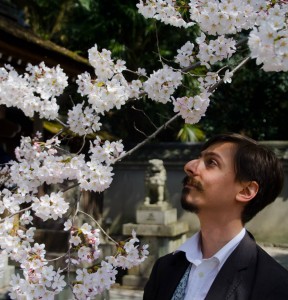 Welcome to Maybe The Point! This is a book review blog started by myself, Matthew, in response to the number of books I’ve been reading. I have a dreadful memory, so I hardly recall even the vaguest details from books I’ve read even relatively recently. By writing these reviews, I’m hoping to give myself a better chance at remembering all the wonderful novels I’ve spent so much time enjoying, as well as provide a helpful resource for people such as yourself, who may want to know a little bit more about a book than what you find on the back cover.
Welcome to Maybe The Point! This is a book review blog started by myself, Matthew, in response to the number of books I’ve been reading. I have a dreadful memory, so I hardly recall even the vaguest details from books I’ve read even relatively recently. By writing these reviews, I’m hoping to give myself a better chance at remembering all the wonderful novels I’ve spent so much time enjoying, as well as provide a helpful resource for people such as yourself, who may want to know a little bit more about a book than what you find on the back cover.
Check back every Monday for a new review!
– Matthew